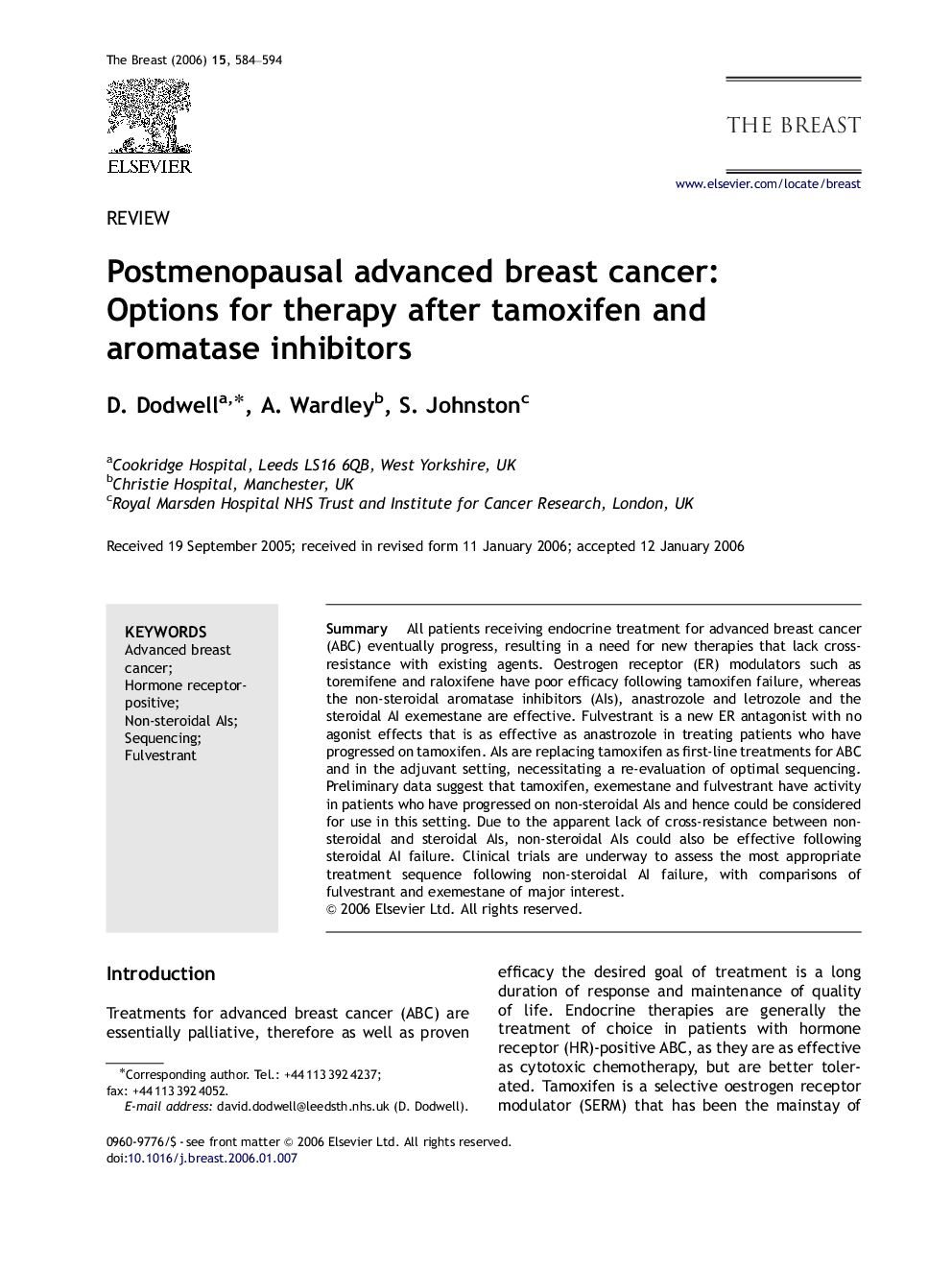| Article ID | Journal | Published Year | Pages | File Type |
|---|---|---|---|---|
| 3910305 | The Breast | 2006 | 11 Pages |
SummaryAll patients receiving endocrine treatment for advanced breast cancer (ABC) eventually progress, resulting in a need for new therapies that lack cross-resistance with existing agents. Oestrogen receptor (ER) modulators such as toremifene and raloxifene have poor efficacy following tamoxifen failure, whereas the non-steroidal aromatase inhibitors (AIs), anastrozole and letrozole and the steroidal AI exemestane are effective. Fulvestrant is a new ER antagonist with no agonist effects that is as effective as anastrozole in treating patients who have progressed on tamoxifen. AIs are replacing tamoxifen as first-line treatments for ABC and in the adjuvant setting, necessitating a re-evaluation of optimal sequencing. Preliminary data suggest that tamoxifen, exemestane and fulvestrant have activity in patients who have progressed on non-steroidal AIs and hence could be considered for use in this setting. Due to the apparent lack of cross-resistance between non-steroidal and steroidal AIs, non-steroidal AIs could also be effective following steroidal AI failure. Clinical trials are underway to assess the most appropriate treatment sequence following non-steroidal AI failure, with comparisons of fulvestrant and exemestane of major interest.
